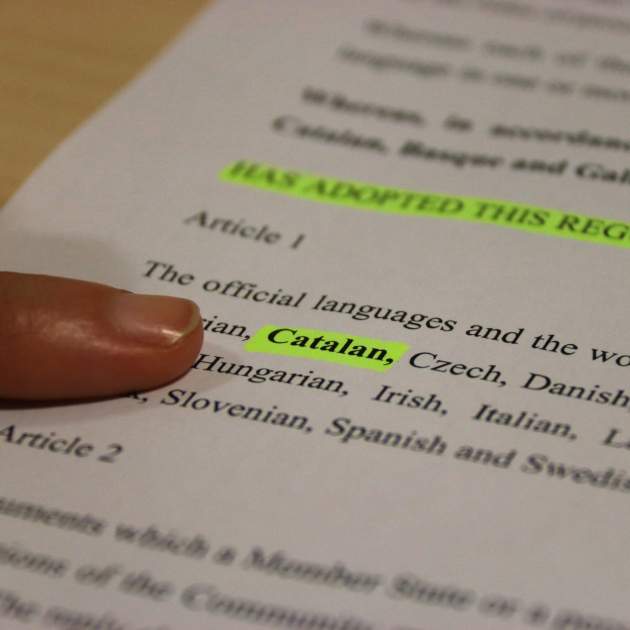The granting of official EU language status to Catalan, which a few months ago seemed like a feasible possibility in the near futurea feasible possibility in the near future, is now acting like a looped GIF. According to the ACN news agency, the European affairs ministers of the member states do not plan to address this matter at the meeting they will hold on February 20th. They will not consider the official status of Catalan, nor that of Basque and Galician. Last year, at the end of the Spanish presidency of the 27, it was thought that this milestone would be reached, but it was not. With the current Belgian presidency, things don't seem to be going much better either, although some positive expectations have been raised.
The Belgian presidency is not doing any better with regard to Catalan than Spain did during its own six-month tenure in charge, when it placed the issue on the agenda at almost all meetings, although it was in the interests of the Spanish government to do so, in order to facilitate Pedro Sánchez's deals with the pro-independence parties. Since January, this language question has been left out of the meetings and has only been addressed from a technical point of view.
Diplomatic sources cited by the ACN assert that this postponement is due to the fact that the reports on the impact of the initiative have not yet been concluded, an issue that the other member states consider essential to be able to debate the issue. On the possibility of whether there will be progress on the reports in time for the March meeting, the sources quoted by the Catalan agency say that it is difficult to predict. The agenda for the February 20th meeting only contemplates, for the moment, that the ministers are to prepare the next summit of European leaders and will also discuss rule of law issues in Poland.
It's the EU 'tempo', says Catalan government
After the official EU status of Catalan was left off the agenda for the next ministerial meeting of the 27, the Catalan government - according to ACN - has asserted that this does not mean that the issue is "postponed or frozen". Executive sources note that "the procedure is following the usual course" and "European tempos". "Until the reports are completed, it is normal for the presidency not to bring the issue back to the Council table," the government of the Generalitat notes, stressing that it is necessary to "continue to maintain diplomatic contacts to dispel doubts and reluctance, ready for when the reports are completed".
The Pere Aragonès executive says it also continues to be in "permanent contact" with the Spanish government, which, it underlines, "continues to hold the maximum responsibility over whether the proposal goes ahead". "They acquired a commitment and must do everything in their power to fulfill it," they said, while affirming Belgium's "predisposition" to keep the issue on the Council's agenda over the six months of its presidential watch.
